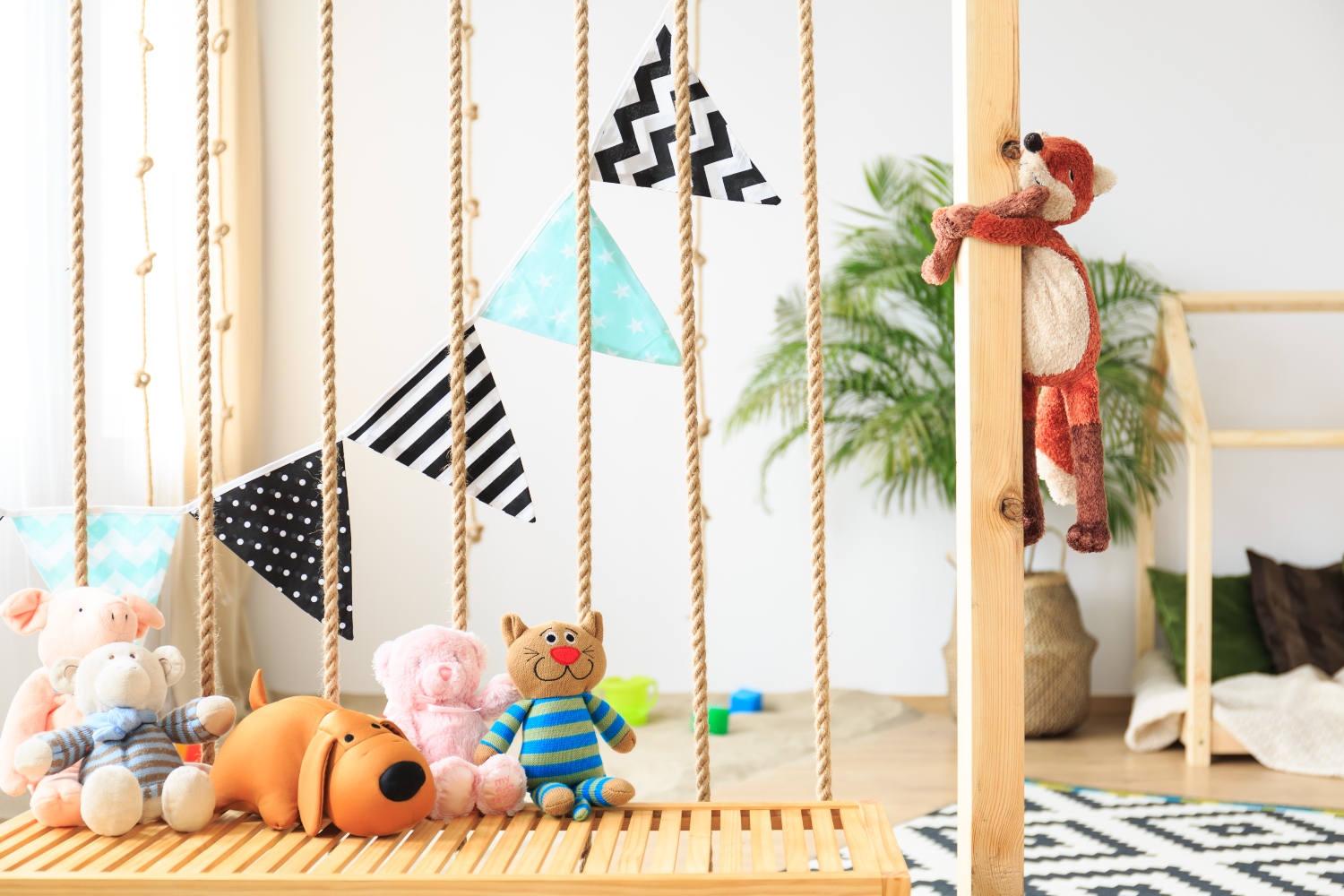Babies are curious by nature. While they’re gentle and innocent, their curiosity often makes everyday objects incredibly dangerous.
Make sure you’re creating a healthy environment for your baby by following the most important tips to baby-proof your home:
Table of Contents
1. Test Your Hot Water Heater Settings
While your hot water heater may not be the first item on your baby proofing to-do list, it’s an important one.
Too often, babies play around with the knobs in the sink or the tub, which can result in them burning themselves.
Make sure your child isn’t able to do this by setting your hot water heater at a maximum of 120 degrees. This way, should your child play with the knobs in the bathtub or sink, they’ll avoid getting burned.
2. Make Sure Bathrooms Are Properly Secured
In addition to turning the temperature of the water down, be sure that the bathroom is childproofed as well. Bathrooms are a danger zone for most children.
As toddlers and babies are drawn to playing with cabinets and toilets, leaving cleaners, medications, and water is incredibly dangerous for children.
Make sure to lock the bathroom doors, close the cabinets, and keep the toilet covered with childproof locks to keep your baby safe from the bathroom.
3. Keep the Crib Safe
While parents believe that their child’s crib is a safe place for them to sleep, cribs can be incredibly dangerous if parents don’t take certain things like the crib-rail height into consideration.
If the crib rail is too high, your baby may pull themselves up and launch out of the crib.
In addition to adjusting the height of the railing, parents need to also keep objects out of the crib. Pillows and blankets can quickly become a hazard if left in the crib.
4. Baby-Proof the Basement
While most homeowners focus on the big-ticket items like keeping knives out of reach, another part of baby proofing is ensuring your home is the healthiest environment possible.
If you have a basement with untreated concrete, it’s important to invest in a basement waterproofing sealer. Coating the concrete floor with this sealer will cover the tiny pores in the foundation, preventing mold and mildew from growing.
Likewise, this sealant helps to lower the risk of flooding as well as minimize the presence of radon.
Consider a waterproofing sealer that is penetrating as this type of sealant won’t flake or peel, leaving an invisible finish on your floor while keeping your home healthy.
Of course, it may be that you don’t feel comfortable doing this work yourself, or perhaps your basement requires more work than just a little sealant. If this is the case, you can contact a professional basement waterproofing in Central IL company, or similar in your area, who will be able to assess the situation to find the most cost-efficient solution for your basement.
5. Watch out for Heavy Objects
Heavy objects are another safety concern as you take the time to baby-proof your home. While your baby won’t be at risk during their first few weeks of life, they’ll start to move when they’re around six months old.
Once babies start rolling around and playing on the floor, it’s important that you keep all heavy objects out of their reach.
Parenting experts suggest laying on the floor to look around from the baby’s point of view. This way, you’ll be able to see what items in your home can quickly become hazardous to your baby.
Consider cabinets with heavy items inside or other types of furniture that have trinkets within reach.
6. Child-Proof Your Electricity
Electricity is always dangerous for children. Children are fascinated with putting things into holes, making electric sockets particularly dangerous.
Now’s the time to find tight-fitting outlet covers that your baby won’t be able to pull off.
Avoid using electrical outlets that are within reach of your child to leave no room for error. This way, you’ll be able to avoid accidentally forgetting to replace the outlet covers.
7. Watch out for Window Blinds
Window blinds are another potential danger. Parents should watch out for the cords of blinds as children sometimes put these around their necks.
Likewise, experts recommend that parents double-check their window coverings and replace corded coverings with cordless options.
Make sure your home is ready to welcome your new baby. With these important baby proofing tips, you’ll be able to keep your new bundle of joy safe as you welcome them into your home.
- How Primary Care Doctors Are Your First Line of Defense - December 23, 2024
- Live-In Caregiver Jobs: Providing Support, Building Bonds - December 19, 2024
- Caring for Your Porcelain Veneers: Tips for a Lasting Smile - November 12, 2024
